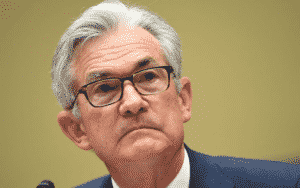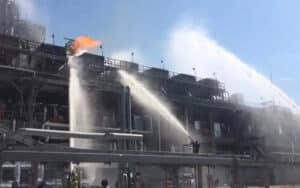Boeing has announced its withdrawal of a minor request it made to the Federal Aviation Administration (FAA) regarding the grounded 737 MAX 7 aircraft. The decision to withdraw the request is expected to have an impact on Boeing’s ability to deliver planes to airlines. However, this move has been deemed the “right decision” by one lawmaker.
The Engine Inlet Deicing System
On Monday, Boeing stated that it was retracting a request for a “time-limited” exemption concerning the engine inlet deicing system of the 737 MAX 7. This particular model is one of four versions of the MAX jet. While the MAX 8 and 9 have received certification and are currently in operation, the MAX 7 and 10 are still awaiting commercial service certification. The MAX 10, in particular, is significantly larger than the MAX 7 and can accommodate approximately 50 more passengers.
Exemption Withdrawal
The exemption request was intended to grant Boeing additional time to address a known issue related to the engine inlet deicing system, without further delay to the certification process. Boeing maintained that this issue did not pose a flight-safety concern and that proper flight crew procedures would effectively mitigate any associated problems.
However, in an emailed statement, Boeing has clarified its decision: “While we are confident that the proposed time-limited exemption for that system follows established FAA processes to ensure safe operation, we will instead incorporate an engineering solution that will be completed during the certification process. As always, the FAA will determine the timing of certification, and we will follow their lead every step of the way. We’re committed to being transparent, listening to all our stakeholders, and taking action to strengthen safety and quality at Boeing.”
Boeing’s wise move in withdrawing this request demonstrates its dedication to safety and commitment to fulfilling FAA requirements.
Boeing’s MAX 7 Certification Likely to Be Delayed
According to a note by Vertical Research Partners analyst Rob Stallard, Boeing’s decision to withdraw the exemption is likely to push back the certification of the MAX 7 aircraft to 2026. This move seems to have received support from U.S. Senators, including U.S. Sen. Tammy Duckworth, who referred to it as the “right decision.”
Potential Impact on Boeing and Airlines
Delays are not ideal for Boeing shareholders or airline customers. However, the MAX 7 variant, which currently has 391 orders, is relatively small compared to the 7,000 orders for the MAX 8 and MAX 10, according to Boeing’s commercial website. In light of this situation, airlines may need to consider modifying their orders from MAX 7 jets to MAX 8, a step that Southwest Airlines has taken previously.
Market Response
Boeing’s stock experienced a 2.2% decline on Tuesday, while the S&P 500 dipped by just 0.1%. The Dow Jones Industrial Average and Nasdaq Composite also saw a slight decrease of 0.2%.
Recent Turmoil at Boeing
Considering the recent troubles faced by Boeing, this decision to delay certification appears to be in line with addressing the ongoing challenges. Prior to this announcement, Boeing’s stock had already dropped by approximately 18% following an incident involving a blown-out emergency door plug on a 737 MAX 9 operated by Alaska Air Group on January 5.
The Federal Aviation Administration (FAA) subsequently grounded all MAX 9 jets in the U.S. earlier this month. These planes have been allowed to resume service following thorough inspections and necessary repairs.
It remains essential for investors to carefully assess these developments within the context of the broader situation at Boeing.


